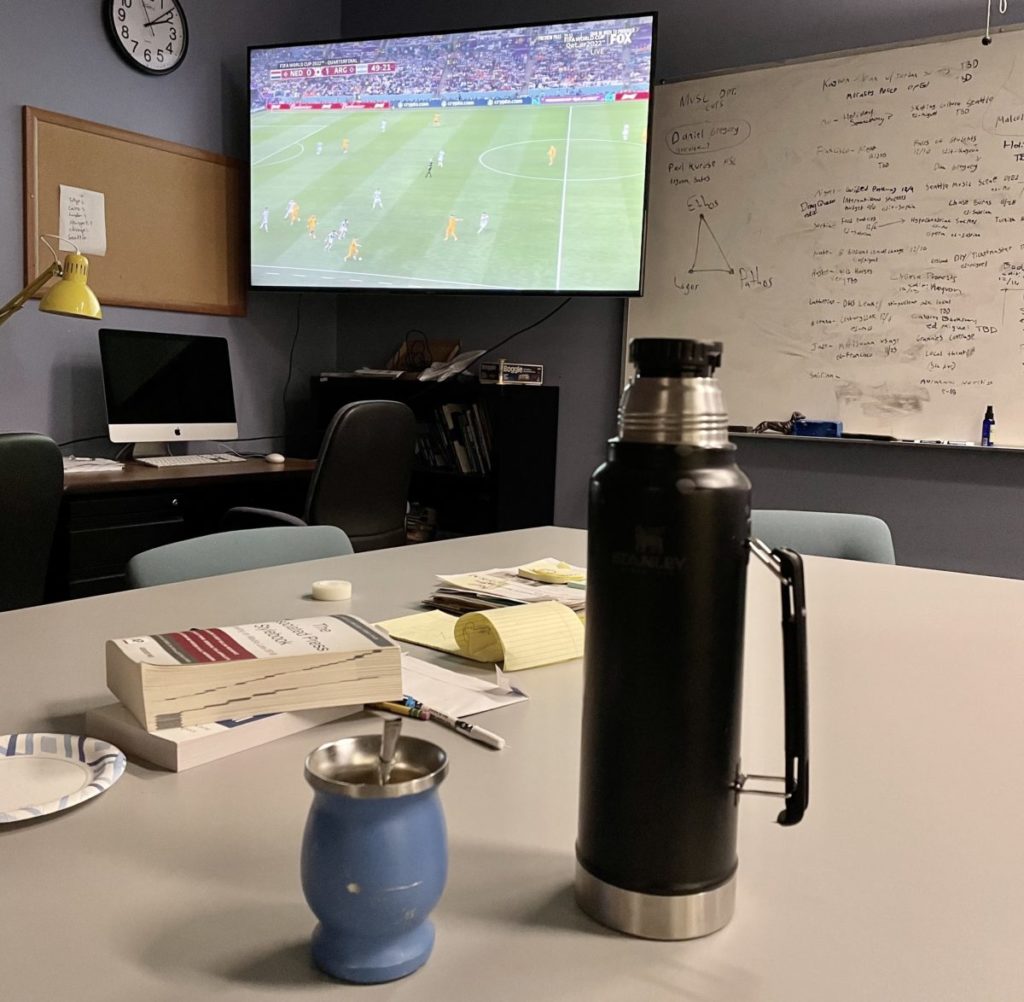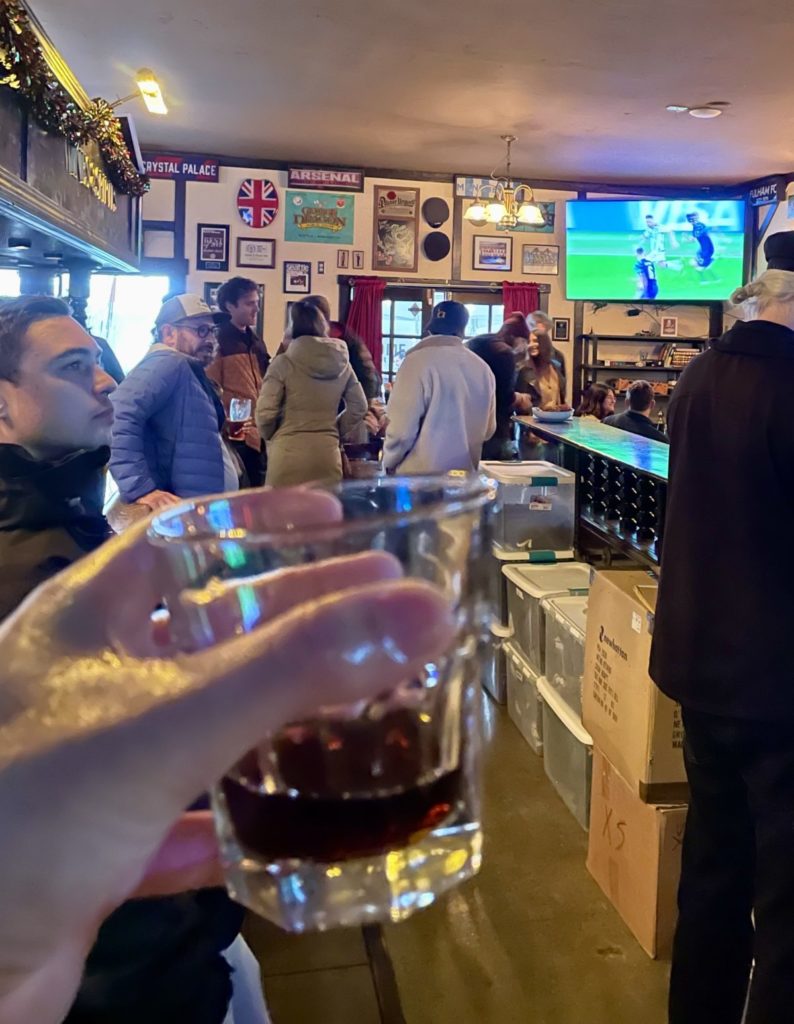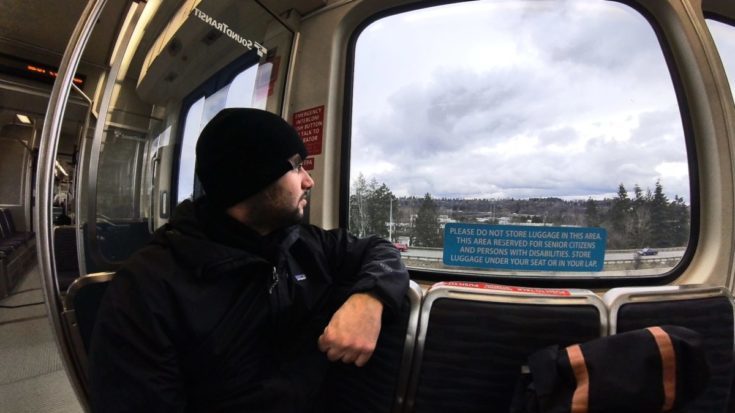If you are an international student, you may know what feeling homesick is like, especially after being away from home for a considerable time. Foreigners living in a country with different customs and lifestyles to what they are used to tend to experience homesickness at some point. The level of suffering varies depending on each person – the subtle inner pain of nostalgia, the feeling of missing home and everything that it comprises. But what can we do if coming back home is not yet an option? This is my story dealing with it, and how it might help other expats.
The truth is, my case of missing home is not so bad. I’m fortunate, I’d say, to not be so attached to my native culture compared to others.
I arrived in Seattle exactly three years ago as of last week, on Jan. 10, 2020, from where I was born and raised: Buenos Aires, Argentina. I haven’t returned home since, and a lot has happened since I arrived here on that cold pre-pandemic day. Every day, I’ve felt the foreign-ness atmosphere in which one perceives the surrounding world, thinking, “I am not from here.” Especially for those who are still learning English, this enduring experience can take its toll at some point. It can create distress if they don’t get the right support, in whichever way that might be. American students who come from other parts of the United States (U.S.) may also experience missing their homes and family, but the environment they are surrounded by tends to be more like their hometowns. Although the U.S. is one of the most diverse countries in the world with major cities adapting to the reception of people from across the globe, the living and experiences here still cannot match home. That is the reason why international students’ health insurance provides their students free access to 24/7 counseling to talk on the phone or via video call. Seattle Central College (SCC) also has its own Counseling Center for distress, culture shock, and other common problems international students may face during their time enrolled at school.
Some agree that distance makes the heart grow fonder, and when we talk about cultural attachments, that is no exception.
Occasionally, I’ve been experiencing mild homesickness. I miss the typical customs and daily little things of Argentina, especially those that are so characteristic from there. The artistic look of the city, streets and buildings, the afternoon mates (hot caffeinated beverages, pronounced “ma-teh”) with chipás (cheese bread, pronounced “chee-pa”) or facturas (pastries) like medialunas (a curvaceous croissant) with family or friends, the Sunday asados (barbecues), empanadas, the way we speak and interact with others, the humor, and even the things that I’m not much of a fan of, like the bitter tastes of Malbec and Fernet Branca, or the hectic people during rush hours in the city of fury. Things that were so normal, common, and easy to get have now felt luxurious or even impossible to get ones hands on, accompanied with a sharp tone of nostalgia. Instead of mates, I had tea; cookies with excessive sugar and crackers replaced my chipás and facturas; I swapped smoked-style barbecues for my asados, tacos for empanadas, political correctness for relaxed conversations and laughs, wine from California for Malbec, and bourbon whisky from Kentucky for Fernet Branca. My Argentine identity was under attack, and I didn’t even stand up for it. I just let it happen. I felt Americanized almost completely.
Then, about two months ago, something happened that made me better remember where I come from and made me feel as if I were back in Argentina again. The FIFA 2022 World Cup began in Qatar, and most Americans, like it or not, were being bombarded by it. Seattle happens to be very popular in soccer, as we have one of the best national soccer teams in the U.S., The Sounders. So, as I used to do back in Argentina, I looked up all of Argentina’s matches and dates and saved them to watch live. It was a bit challenging at first because the sport here is not as popular as it is in other countries, so I had to do some research on TV subscriptions and how to watch.
But why would winning the World Cup or even just supporting the team abroad mean so much for the Argentine migrants around the world? Why was I missing mate here if I didn’t even drink it frequently back home?
Perhaps the funniest and most ironic thing about all of this is that I have never fully been into soccer nor crazy for mate back home. In Argentina, I’d only watch very important games that our favorite soccer club, River Plate, would play. I’d only drink mate rarely, usually when my parents made it and shared, or when they’d leave it on the table after a few sips before having to leave. Then, I’d grab it, cebar (pour hot water into the gourd full of yerba) and have a few sips.
There are some things that Argentines naturally inherit: the passion in our expression, the entirety of ourselves that we put into something we believe in, the continuous risks we keep taking and betting unbendingly and carelessly against all odds, and the persistence to keep our culture alive. The latter was finally kicking in for me. How dull the world would be if there was only one culture, anyway.
This is when I started feeling a bit closer to home. I even bought myself a jersey to wear during all the games. Watching all the fans go crazy and hearing the Argentine media and commentators felt very familiar. For the first match, I had to wake up for a game starting at 2 a.m. PST. There’s an 11-hour difference between Seattle and Qatar, but that wasn’t going to stop me from enjoying this opportunity to feel like a true Argentine – I was more Argentine here than I ever was in Argentina.

I started doing the very few things that I still could do here to remember, feel, and preserve my culture. I managed to get yerba and had some mates while watching some of the games, I made myself some chipás, I cooked a choripán (chorizo sandwich) with chimichurri (Argentine sauce), and I played a few tangos (Argentine music and dance), because why not? I basically built a staged mini-Buenos Aires around me. My host mother, who is Brazilian, would give me weird looks and cringe a bit, but that would only make me play tangos louder. From one day to another, I bought a horn, wore my Albiceleste (sky blue and white with the sun from the Argentine flag) Messi jersey, and headed to George and Dragon, a popular soccer pub in Seattle. I asked the bartender, “Do you have Fernet Branca and a Coca-Cola?” and he, looking surprised, said, “Wow, yes. The last time someone asked for that mix was a very long time ago, by an Argentinian. I’ll bring it to you.” Five minutes later the bartender came, and… there it was, the right proportion of Italian bitter liquor (used originally as medicine) mixed with a bit of American soda. A bit of ice, and it was an indubitable and truly authentic Argentinian trademark. I had a couple sips, and it gave me the good old taste of dysphagia. I put it aside for a moment and quickly reached for some water. But I knew that didn’t matter because this was my long-awaited time, this was my moment of joy. Everything was falling back into place.

We were playing against the Dutch that day, who before that game beat the U.S., eliminating them from the World Cup. After that, the American media seemed to finally be at ease again from the pressure of pretending once again they really wanted to talk about soccer and show interest about it. The Dutch were almost thanked for it. But that would never happen to us, especially the few Argentines in that pub, screaming our songs and chants out loud until we couldn’t speak anymore. We had everything to win or lose. You just wouldn’t understand it.
Match after match, I kept wearing my jersey and watching the games live. We were getting closer and closer to the final game as the matches were getting more and more difficult. Heart attack after heart attack, Fernet after mates, loss of voice after each goal and win celebration. We finally made it to the final game against France, who eliminated us in the previous World Cup of 2018. We had made it so far, and I had been enjoying it so much not only because of the games and fun of it, but also for bringing back to my life those things that I took for granted back home, the daily stuff – the customs and traditions that represent a common identity and unite us. Culture. Home.
Argentina won the world cup, and the country celebrated like never before. A country that has been suffering from economic decline and struggling in the last decades, historically punished by corruption. It was like hope and prosperity were put back on everyone’s faces. Things can indeed get better.
I took an intercultural communication class at SCC once. We learned how something beautiful, fruitful, and enlightening can result from even the most complicated intercultural relations. Today, after three years of being away from home, and who knows how many more, I have learned the importance of cultural appreciation like never before.
The customs and lifestyles, what our parents pass to us, what we share with others and the tastes we develop while growing up, no matter how insignificant they might seem at first, are the things that stick with us and have a long-lasting impact. They bring about warmth and comfort that someday might help us get through the toughest and most enduring situations. Home, and everything it means to us, is what can keep us strong throughout life – it carries us through difficult times in the most diverse scenarios.

I’m personally not from here, but I already know you aren’t either – from nowhere, but a little bit from everywhere. As a foreigner, international student, expat, transplant, alien, earthling, American, whatever you want to call it, if you ever get a chance to express and share your culture, don’t miss the opportunity to respectfully do so with others. But most importantly, find and share the home within yourself.
Author

Francisco Fonseca is the Web Manager for The Seattle Collegian.
He is originally from Buenos Aires, Argentina.












Oh, what a powerful and beautiful story, Francisco! Thank you for sharing your bicultural experience and the poignancy of home. I found so much that resonated with me; my father loved Fernet Branca. Even though I’ve lived in the United States longer than I spent in the land of my birth, I still refer to Jamaica as home. And yes indeed, I too cherish the bonding with others over sporting events, entertainment, any opportunity where my homeland is on the world stage… rekindles my national pride. I offer this paraphrase of a quote from Haitian American author, Edwidge Danticat, shared with me:
“I leave home, but home doesn’t leave me.” Thank you!